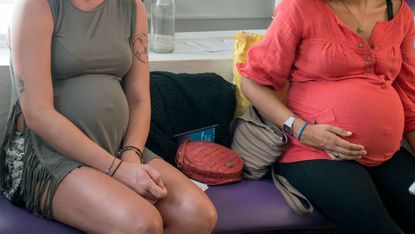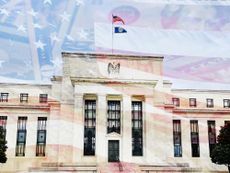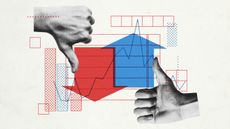Can pregnancy rates predict a recession?
Analysis shows number of women falling pregnant drops several months before the start of an economic downturn

Pregnancy rates could be used to predict an imminent economic recession, new research from US academics has suggested.
The authors of Is Fertility a Leading Economic Indicator? tracked more than 100 million births in the US between 1989 and 2016 and found that the rate of conceptions began to fall several months before an economic downturn.
The BBC says “economists are frequently criticised for failing to accurately predict the direction of economic growth [and] increasingly they are looking beyond traditional measures such as manufacturing output, retail spending and house prices to help build a more complex and accurate picture”.
Subscribe to The Week
Escape your echo chamber. Get the facts behind the news, plus analysis from multiple perspectives.

Sign up for The Week's Free Newsletters
From our morning news briefing to a weekly Good News Newsletter, get the best of The Week delivered directly to your inbox.
From our morning news briefing to a weekly Good News Newsletter, get the best of The Week delivered directly to your inbox.
It has long been accepted that birth rates decline as a result of falling consumer confidence in the middle of a recession, but now it appears that pregnancy rates could be used to predict future economic productivity before it starts to decline.
There also appears to be a link between the rate of fertility decline and the scale of the subsequent downturn, and the report’s authors say it is more accurate than many traditional indicators.
Summarising their findings, Daniel Hungerman, Kasey Buckles and Steven Lugauer suggested proxy data like the sale of fertility and pregnancy related goods should be monitored for signs of an impending economic downturn.
Create an account with the same email registered to your subscription to unlock access.
Sign up for Today's Best Articles in your inbox
A free daily email with the biggest news stories of the day – and the best features from TheWeek.com
-
 Pros and cons of solar energy
Pros and cons of solar energyPros and cons Solar power could become the primary source of electricity worldwide by 2050 – but there are still clouds in the forecast
By Rebecca Messina, The Week UK Published
-
 Post Office's Capture software to be reviewed over 'glitches'
Post Office's Capture software to be reviewed over 'glitches'Speed Read Solicitor representing accused postmasters says flaws in the IT system follow 'very similar pattern' to Horizon
By Arion McNicoll, The Week UK Published
-
 How would we know if World War Three had started?
How would we know if World War Three had started?Today's Big Question With conflicts in Ukraine, Middle East, Africa and Asia-Pacific, the 'spark' that could ignite all-out war 'already exists'
By Harriet Marsden, The Week UK Published
-
 How the world economy learned to live with the drama
How the world economy learned to live with the dramaUnder the Radar As economists predict a 'soft landing' after recent crises, is the global economy now 'oblivious to the new world disorder'?
By Elliott Goat, The Week UK Published
-
 Could Fed interest rate cuts tip the election?
Could Fed interest rate cuts tip the election?Talking Point The central bank could make interest rate cuts during a campaign focused on the economy
By Harold Maass, The Week US Published
-
 How long can consumers keep the economy humming?
How long can consumers keep the economy humming?Talking Point Consumers boosted growth, defying recession warnings. The question is whether 2024 will be different.
By Harold Maass, The Week US Published
-
 How did America avoid a recession in 2023?
How did America avoid a recession in 2023?Today's Big Question A downturn was inevitable. Until it wasn't.
By Joel Mathis, The Week US Published
-
 Will the UK economy bounce back in 2024?
Will the UK economy bounce back in 2024?Today's Big Question Fears of recession follow warning that the West is 'sleepwalking into economic catastrophe'
By Chas Newkey-Burden, The Week UK Published
-
 Inflation vs. deflation: which is worse for national economies?
Inflation vs. deflation: which is worse for national economies?Today's Big Question Lower prices may be good news for households but prolonged deflation is ‘terrible for the economy’
By The Week Staff Published
-
 UK avoids recession - but will anyone notice?
UK avoids recession - but will anyone notice?Today's Big Question Think tank says 2023 ‘will feel like a recession for many, regardless of the data’
By Chas Newkey-Burden Published
-
 Recession in doubt after unexpected growth in UK economy
Recession in doubt after unexpected growth in UK economySpeed Read Service industry provides welcome boost but experts warn that economy is ‘at best stagnating’
By Chas Newkey-Burden Published